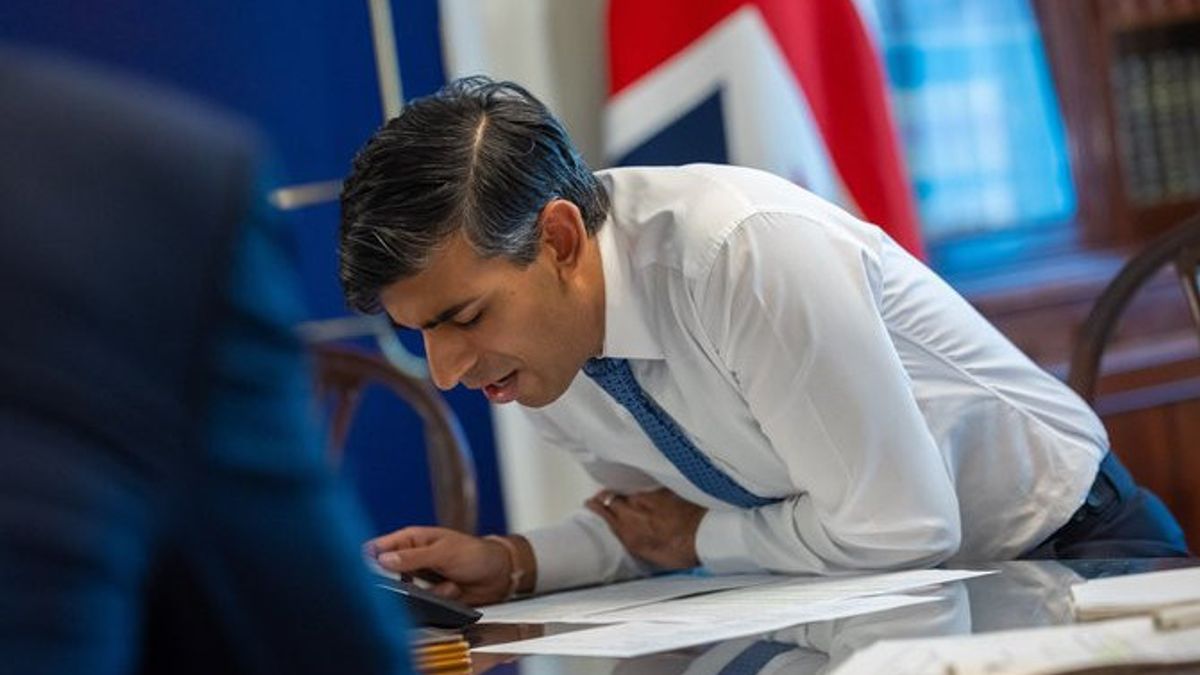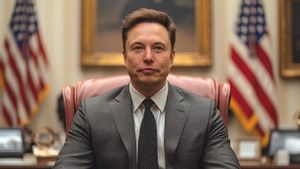JAKARTA - The UK will host its first global artificial intelligence (AI) safety meeting next month. The country wants to play a role as an intermediary between the United States, China and the European Union after Brexit in the key technology sector.
The meeting, which took place on November 1-2, will be very focused on the existential threat that some MPs, including British Prime Minister Rishi Sunak, fear that AI will materialize. Sunak, who wants Britain to become the center of AI's safety, has warned that this technology could be used by criminals and terrorists to create weapons of mass destruction.
The European Union, on the other hand, has so far prioritized the implications of this technology on the human rights and the company's transparency.
Sunak will host about 100 guests at Bletchley Park, a location south of England where mathematician Alan Turing managed to dismantle Germany's Nazi Enigma code.
US Vice President Kamala Harris and Google DeepMind CEO Demis Hassabis were among the guests attending, including lawmakers, AI pioneers, and academics.
"The goal of this meeting is to start an international dialogue on AI regulations," said Matt Clifford, a technology investor and one of the two main organizers of the event.
"This is not parliament," Clifford said. "We don't make laws, we don't make agreements. We try to bring different people into conversations with very different opinions."
The UK government's agenda for the event, published this week, includes discussions on the advancement of unpredictable technology and the potential for humans to lose control of it.
But some experts argue that this conference shouldn't focus too much on existential threats. They say there are more pressing issues.
"Most of the people I talk about are confused about why Britain is taking this approach," said Stephanie Hare, lead author and researcher in technology ethics. "The question is: What are you going to do?"
When Sunak first announced the meeting in June, several well-known figures had warned about the existential risk of AI. Tesla's businessman Elon Musk has asked for delays in developing such a system. Former Google researcher and "Father of AI," Geoffrey Hinton, warned that this technology poses a more pressing threat to humanity than climate change.
Critics are asking why Britain has appointed itself as the AI safety center. But supporters say the meeting will emphasize London's position as the world's leading technology center. According to latest Dealroom data, British tech companies are gathering more capital in 2022 than companies in France and Germany combined.
Within weeks of Sunak announcing the meeting, OpenAI announced that it would open its first office outside the United States, namely in London. While Google has published an analysis showing further investment in AI will provide a push of 400 billion pounds (IDR 7,679 trillion) for the UK economy by 2030.
VOIR éGALEMENT:
Marc Warner, CEO of London-based AI company Fakety, who was present at the meeting, said: "There are three major poles in the world: the US, EU, and China. If you want to try international cooperation, it's unclear that one of them will leave it in another country."
"If you agree that London is the third most important AI city, after San Francisco and Beijing, and that the UK is relatively neutral compared to the top three blocks, this is a reasonable proposal," he added.
The EU recently confirmed that Vice President Vera Jourova had accepted an invitation for the event, but did not want to confirm her presence.
"At the time of writing, two members of the European Parliament who led the preparation of the AI Act bloc, Brando Benifei and Dragos Tudorache, have not received an invitation. It seems that the focus of this event on safety may be a different concept of safety from the AI Act, which has focused on protecting human rights," Benifei said.
While the architects of AI regulation in Europe may not attend, the British government is faced with criticism of one of the potential participants: China.
Finance Minister Jeremy Hunt defended the decision in an interview with Politico, "If you're trying to create a structure that makes AI something that overall benefits net to humanity, then you can't ignore the world's second-largest economies," Hunt said.
The English, Chinese, Japanese, Arabic, and French versions are automatically generated by the AI. So there may still be inaccuracies in translating, please always see Indonesian as our main language. (system supported by DigitalSiber.id)

















